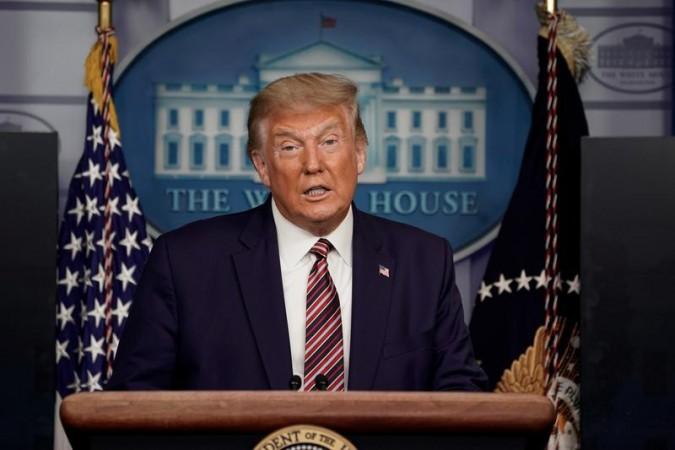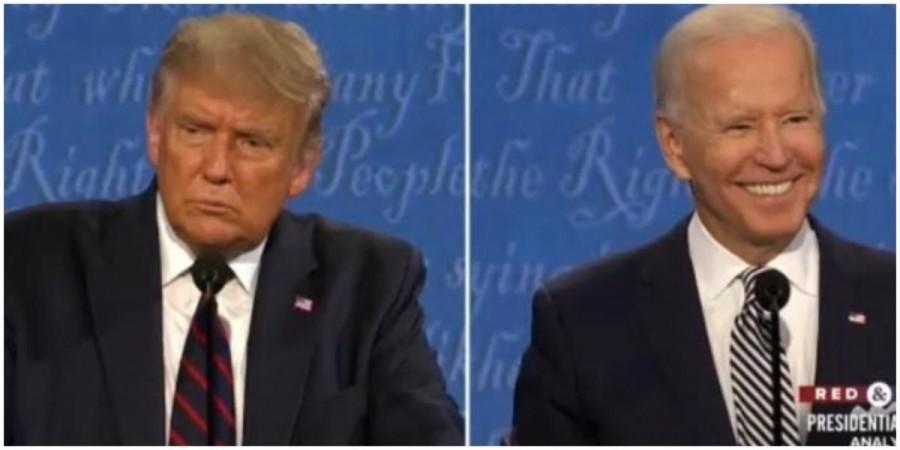Stocks rose on Monday as signs that President Donald Trump's health was improving eased some of the political uncertainty caused by his coronavirus infection, which sent investors rushing for safety last week.
Trump, 74, was flown to the hospital for treatment for the coronavirus on Friday, but his doctors say he has responded well and could return to the White House on Monday.

That helped U.S. S&P 500 e-mini futures EScv1 rise 0.62%, while Nasdaq futures NQc1 gained 0.89%. MSCI's broadest index of Asia-Pacific shares outside Japan .MIAPJ0000PUS rose 1.08%. Euro Stoxx 50 futures STXEc1 were up 0.82%, German DAX futures FDXc1 rose 0.72%, and FTSE futures FFIc1 gained by 0.91%.
Overhanging the relief rally, however, are continued uncertainty about his condition and some concerns that Trump's case could be more severe than public disclosures suggest. "Equities and other risk-on traders should be well-supported by easing concerns about Trump's health," said Junichi Ishikawa, senior currency strategist at IG Securities in Tokyo.
"For the dollar, the impact is not quite as clear cut. It should fall against most currencies due to an increase in risk appetite, but the yen is also weak, and that's the one currency the dollar can rise against." Australian stocks .AXJO jumped 2.48% for the biggest daily gain since July 21. Japan's Nikkei .N225 rose 1.19%. China's financial markets are closed for a public holiday.
The dollar edged higher against the yen but fell slightly against the Swiss franc as traders jockeyed for position ahead of what could be a volatile day in global markets. Treasury yields rose slightly on reduced demand for the safety of holding government debt.
Doctors treating Trump say they are pleased with his progress. Relief about his health has fuelled a rally in equities and other risky assets as investors prepare for the run-up to next month's U.S. presidential election. Investors around the world were stunned late Thursday after Trump announced that he and the first lady had tested positive for coronavirus.
With less than a month until the presidential election on Nov. 3, Trump's contraction of the coronavirus is another source of market volatility that makes the outcome of the vote even more difficult to predict.

Democrat Joe Biden opened his widest lead in a month in the U.S. presidential race, according to a Reuters/Ipsos poll released on Sunday. The White House initially sent mixed messages about Trump's health, helping fuel political uncertainty and putting the investor focus tightly on any news about his condition.
Some traders were particularly concerned by doctors' admission that Trump had been given supplementary oxygen and steroids, which are normally used to treat severe cases of COVID-19. Doctors not involved in Trump's treatment said they suspected his condition might be worse than initially reported, because his age makes him more vulnerable to complications.
White House doctors used remdesivir, an intravenous antiviral drug sold by Gilead Sciences GILD.O, to treat the president. The U.S. dollar rose 0.21% to 105.56 yen but fell 0.39% to 0.9174 Swiss franc CHF=EBS as some investors adjusted positions in safe-harbour currencies.
The Australian dollar rose 0.26% to $0.7183 after the Australian government, which hands down a federal budget on Tuesday, announced additional wage subsidies to help the labour market. Yields on benchmark 10-year Treasuries rose to 0.7072% and the yield curve US2US10=TWEB steepened slightly in a sign that the majority of investors felt comfortable taking on more risk.
Gold, another asset often bought during times of uncertainty, fell 0.32% to $1,892.74, highlighting increased risk appetite. Brent crude futures LCOc1 rose 2.09% to $40.09 a barrel while U.S. crude futures CLc1 gained 2.38% to $37.93 per barrel.














